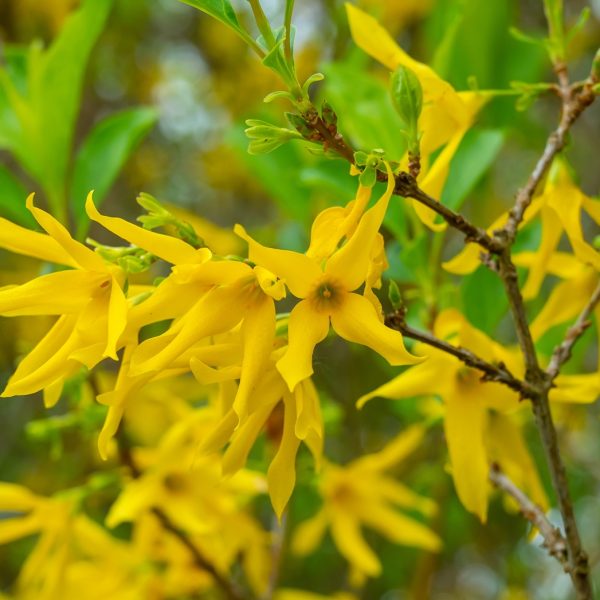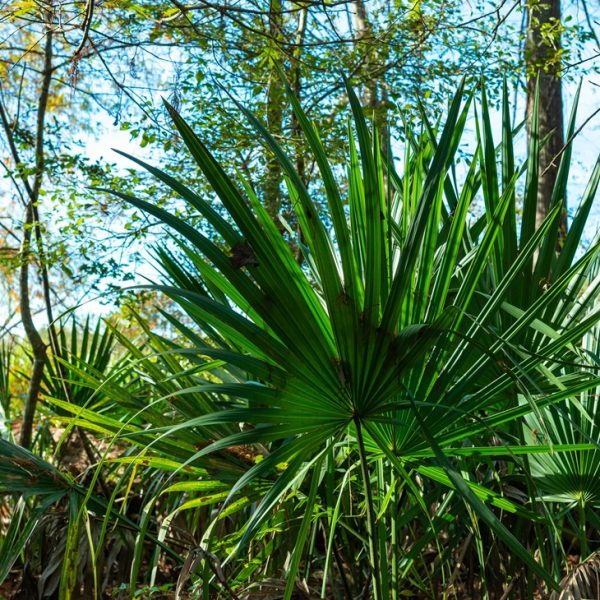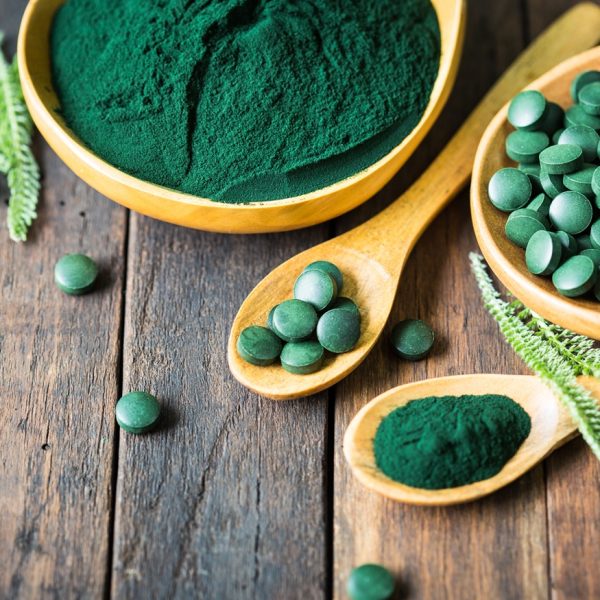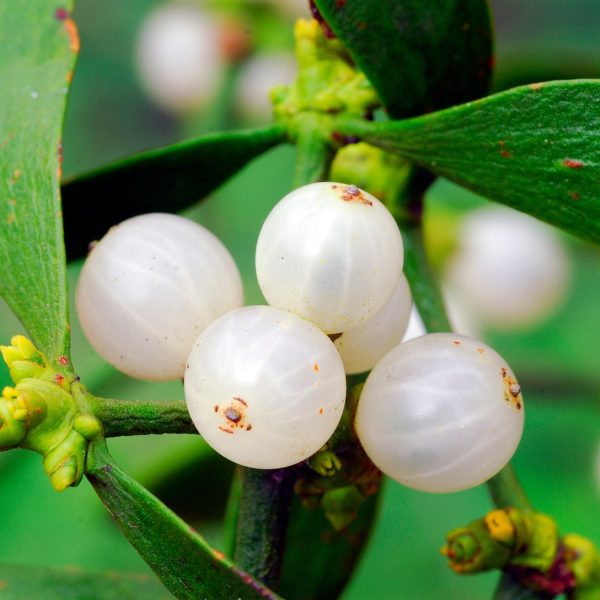Men find it uncomfortable talking about their prostate. We take a look at the root causes of prostate health issues and herbal treatments.
Understanding prostate health

When it comes to prostate health there is a cultural problem: men find it uncomfortable talking about their prostate. As men age it is common for their prostate to get bigger and, as a result, most men will experience some kind of prostate trouble during their lifetime. Natural prostate enlargement is not life-threatening but it should not be dismissed because, for many men, it will have a major effect on their quality of life (and the life of their partners) because the symptoms are so unpleasant: a frequent need to urinate coupled with difficulty doing so. The good news is there are many things that can be done but it sometimes can be challenging to get people with prostate problems to take it seriously. (1)
The prostate is generally associated with three main conditions:
- Benign prostatic hyperplasia (BPH): An aging-related enlargement or swelling of the prostate gland
- Prostatitis: Infection or inflammation of the prostate
- Prostate cancer: The growth of cancerous cells inside the prostate, which may break out of the gland and affect other parts of the body (2)
How does prostate health work?
The prostate is a small gland that lives just below the bladder in men. It sits around the urethra, which is the tube that carries urine from the bladder through the penis. The prostate produces some of the fluids contained in semen, the liquid that transports sperm. This liquid contains special enzymes and hormones that help the sperm cells function properly, which means the prostate plays a key part in fertility. The muscles in the prostate also help push semen through the urethra during ejaculation. The prostate’s location means that any problems with it can affect urination and sexual function. (3)
Understanding the root
BPH
BPH is a common condition, observed in 90% of men over 60, in which benign (non-cancerous) nodules cause an enlargement of the prostate gland. The cause is unknown. It can significantly affect quality of life by producing considerable discomfort during urination. The enlargement can mean the prostate expands from the size of a walnut to the size of an apricot or even a lemon. (4)

Prostatitis
Although some of the symptoms are similar prostatitis is different from BPH. Prostatitis can cause the prostate to become swollen, tender or inflamed. There are two main types: acute prostatitis and chronic prostatitis. Acute prostatitis is caused by an infection, usually by bacteria. Chronic prostatitis, also known as chronic pelvic pain syndrome, is a less well-defined condition. (5)
Prostate cancer
When it comes to their prostate health perhaps the biggest concern for most men is how they can reduce their risk of prostate cancer. Older men are at an increased risk of prostate cancer, especially if they have a family history and/or a higher prostate specific antigen (PSA) level. PSA is a protein made by the cells in the prostate. (6)
Prostate tests
Doctors can use a variety of tests to check on the condition of the prostate. If a man has an enlarged prostate, but is not bothered by symptoms, he may be advised merely to get an annual check-up. Tests include:
Digital rectal exam
Doctors use the dreaded digital rectal exam as a relatively simple test to check the prostate although it is largely becoming a thing of the past for men who do not have symptoms of prostate cancer. Because the prostate is an internal organ the doctor cannot look at it directly. However, because the prostate lies in front of the rectum they can feel it by inserting a gloved, lubricated finger into the rectum. While this is an uncomfortable procedure for the patient the test takes only a few minutes to complete.
Prostate-specific antigen test
PSA levels can be measured using a blood test and, while not a test for cancer, can give an indication of the prostate’s health. Higher levels may be a sign of cancer however by themselves they are not proof of prostate cancer. Higher levels could also point to an enlarged prostate or prostatitis. PSA levels may be low even with men who have prostate cancer so the results need to be discussed with a doctor. PSA screening remains deeply controversial as it can lead to excessive unnecessary biopsies and potential overtreatment. The current recommendation is to consider the risks and benefits of screening and discuss it with the doctor. (7)
Signs and symptoms
Signs and symptoms of BPH
For some men an enlarged prostate does not cause any symptoms however for others symptoms can include:
- Difficulty urinating, including getting started or getting a strong or steady ‘flow’
- Needing to urinate often
- Needing to urinate suddenly, without the normal build up
- Waking up at night to go to the toilet
- Pain or burning when urinating
- Pain when ejaculating
Signs and symptoms of Prostatitis
Prostatitis symptoms can include the above along with:
- Fever
- Blood in the urine
- Lower back pain
- Pain in the rectum
- A feeling of heaviness behind the scrotum
- A urinary blockage, which means an inability to urinate when needed.
Signs and symptoms of prostate cancer
In its early stage’s prostate cancer does not necessarily cause symptoms. A lot of the symptoms are similar to symptoms of other conditions, including those above in BPH or prostatitis, which is why it’s important to always see a doctor if any of these symptoms or changes are noticed. (8)
Herbal solutions
Immune modulators

Astragalus (Astragalus membranaceus)
Astragalus is an immune modulator for concurrent immune deficiencies and to enhance the body’s own defence mechanisms so that it can fight off infection. (9)
Echinacea (Echinacea spp.)
Echinacea is ideal for immune support to address the infective cause of prostatitis and improve the response of the immune system to eradicating the pathogen. (12)
Endocrine modulators
Red clover (Trifolium pratense)
Evidence suggests that administration of red clover may decrease the risk of BPH possibly by impairing androgen activity in men. (19)
Tonics/ Trophorestoratives
Wild oats (Avena sativa)
Wild oats is a nervine that has been used traditionally by the Eclectics in combination with saw palmetto. There is some truth to the universally understood reference to promiscuity “sowing your wild oats” because they support reproductive health by nourishing the endocrine system and restoring nerve health. As a result they have a traditional use as a tonic appropriate for ageing men. (22)
Saw palmetto (Serenoa repens)
Saw palmetto is the premier herbal treatment for BPH and has been lauded as ‘the old man’s friend’. A large number of papers have evaluated saw palmetto’s efficacy in controlling BPH related lower urinary tract symptoms. A 2020 study indicated that saw palmetto had the same effect in treating BPH compared with tamsulosin, a drug known as Flomax used for BPH. (20) (21)

Diuretics
Cornsilk (Zea mays)
Cornsilk may be used for urinary infections, or when there is difficulty passing urine, such as in prostatitis. (10)
Dandelion leaf (Taraxacum officinale)
Dandelion leaf is a diuretic which flushes the urinary pathways preventing infection and alleviating discomfort and pressure. (11)
Other herbs to support prostate health
Marshmallow (Althaea officinalis)
Marshmallow is a urinary demulcent which can have a soothing effect on irritated urinary structures, useful in conditions such as BPH. (14)
Nettle root (Urtica dioica)
Nettle root has long been used by herbalists to support prostate health and has been studied for its role in managing the symptoms of BPH. Studies in men with BPH demonstrate that nettle root helps treat short- and long-term urination problems without side effects. (15) (16) (17)
Pomegranate (Punica granatum)
Some early research suggests that drinking pomegranate juice slows the progression of prostate cancer. (18)
Green tea (Camellia sinensis)
Epidemiological studies show that green tea consumption decreases the risk for prostate cancer. (13)
Holistic solutions

Eat a nutrient dense, wholefoods anti-inflammatory diet
Diet plays a critical role in the health of the prostate. Encourage general wholefood diet principles. If overweight, losing weight is one of the most important natural changes that can be made in improving prostate health, whether the concerns are cancer, BPH or prostatitis. The Mediterranean diet is healthy way of eating that can be followed as a way of life.
Include: Fruit, such as berries, and vegetables, especially cruciferous such as broccoli, cabbage and kale. Cooked tomatoes (for antioxidant lycopene content) and carrots are beneficial. Garlic, onion and shallots as well as spices such as turmeric and cumin. Increase oily fish (high in omega-3 fatty acids) as a protein plus seeds, legumes and foods high in healthy fats such as avocados, nuts and olives.
Avoid: The best diet for prostate health is one that is low in sugar, processed foods and saturated fats. Reduce animal products, including fatty meats and dairy, to reduce triglyceride levels, cancer risk, improve cardiovascular function and stabilise hormone cascades. Reduce (ideally avoid) alcohol and caffeine consumption. (23)
Stay active
Several large studies have shown that increased levels of physical activity are associated with a decreased risk of BPH and lower urinary tract symptoms.Exercise at least four times a week incorporating relaxing exercise as well such as yoga or Pilates. Exercise also benefits cardiovascular health and can help prevent other health and sexual problems such as erectile dysfunction. (24)
Improve sleep hygiene
This includes cutting back on how much drink is consumed at night and before bedtime, especially drinks with alcohol or caffeine. (25)
Reduce stress
To reduce the negative effects of stress on the body it is important to manage stress levels, release tension and take care of emotional health. Incorporate stress management techniques such as meditation, deep breathing exercises and psychotherapy. (26)
References
- Mannix L. What’s the prostate and why is it prone to problems? The Sydney Morning Herald c.2022. (updated 14 Nov 2021; accessed 15 Feb 2022). Available from https://www.smh.com.au/national/what-s-the-prostate-and-why-is-it-prone-to-problems-20211108-p5971r.html
- Simon HB.Prostate Enlargement (Benign Prostatic Hyperplasia). National Institute of Diabetes and Digestive and Kidney Diseases. U.S. Department of Health and Human Services National Institutes of Health USA.gov. (updated Sep 2014; accessed 28 Feb 2022). Available from https://www.niddk.nih.gov/health-information/urologic-diseases/prostate-problems/prostate-enlargement-benign-prostatic-hyperplasia
- Everything you need to know about your prostate. The State of Queensland (Queensland Health) c1996-2022 (updated 2 Oct 2020; accessed 8 Feb 2022). Available from https://www.health.qld.gov.au/news-events/news/prostate-facts-awareness-enlarged-testing-cancer-symptoms
- The growing problem of an enlarged prostate gland. The President and Fellows of Harvard College. c2022. (updated 3 Feb 2021; accessed 17 Feb 2022). Available from https://www.health.harvard.edu/mens-health/the-growing-problem-of-an-enlarged-prostate-gland
- Prostate disease. Better Health Channel. Department of Health, State Government of Victoria, Australia. c2022. (accessed 16 Feb 2022). Available from https://www.betterhealth.vic.gov.au/health/conditionsandtreatments/prostate-disease
- Everything you need to know about your prostate. The State of Queensland (Queensland Health) c1996-2022 (updated 2 Oct 2020; accessed 8 Feb 2022). Available from https://www.health.qld.gov.au/news-events/news/prostate-facts-awareness-enlarged-testing-cancer-symptoms
- Villanueva Herrero JA, Abdussalam A, Kasi A. Rectal Exam. [Updated 2021 Jul 1]. In: StatPearls [Internet]. Treasure Island (FL): StatPearls Publishing; 2022 Jan-. Available from: https://www.ncbi.nlm.nih.gov/books/NBK537356/
- Everything you need to know about your prostate. The State of Queensland (Queensland Health) c1996-2022 (updated 2 Oct 2020; accessed 8 Feb 2022). Available from https://www.health.qld.gov.au/news-events/news/prostate-facts-awareness-enlarged-testing-cancer-symptoms
- Hechtman L. Clinical Naturopathic Medicine. Sydney:Churchill Livingstone Elsevier. 2012. p. 890
- Hechtman L. Clinical Naturopathic Medicine. Sydney:Churchill Livingstone Elsevier. 2012. p. 903
- Hechtman L. Clinical Naturopathic Medicine. Sydney:Churchill Livingstone Elsevier. 2012. p. 890
- Hechtman L. Clinical Naturopathic Medicine. Sydney:Churchill Livingstone Elsevier. 2012. p. 902
- Lassed S, Deus CM, Djebbari R, et al. Protective Effect of Green Tea (Camellia sinensis (L.) Kuntze) against Prostate Cancer: From In Vitro Data to Algerian Patients. Evid Based Complement Alternat Med. 2017;2017:1691568. doi:10.1155/2017/1691568
- Hechtman L. Clinical Naturopathic Medicine. Sydney:Churchill Livingstone Elsevier. 2012. p. 903
- Rapp C. Special Saw Palmetto and Stinging Nettle Root Combination as Effective as Pharmaceutical Drug for Prostate Symptoms. American Botanical Council’s Herbalgram 72 (2006): 20–21.
- Safarinejad MR. Urtica dioica for treatment of benign prostatic hyperplasia: a prospective, randomized, double-blind, placebo-controlled, crossover study. J Herb Pharmacother. 2005;5(4):1-11. PMID: 16635963.
- Ghorbanibirgani A, Khalili A, Zamani L. The efficacy of stinging nettle (urtica dioica) in patients with benign prostatic hyperplasia: a randomized double-blind study in 100 patients. Iran Red Crescent Med J. 2013 Jan;15(1):9-10. doi: 10.5812/ircmj.2386. Epub 2013 Jan 5. PMID: 23487561; PMCID: PMC3589769.
- Paller CJ, Pantuck A, Carducci MA. A review of pomegranate in prostate cancer. Prostate Cancer Prostatic Dis. 2017;20(3):265-270. doi:10.1038/pcan.2017.19
- Katz AE. Flavonoid and botanical approaches to prostate health. J Altern Complement Med. 2002 Dec;8(6):813-21. doi: 10.1089/10755530260511829. PMID: 12614534.
- Geavlete P, Multescu R, Geavlete B. Serenoa repens extract in the treatment of benign prostatic hyperplasia. Ther Adv Urol. 2011;3(4):193-198. doi:10.1177/1756287211418725
- Cai T, Cui Y, Yu S, Li Q, Zhou Z, Gao Z. Comparison of Serenoa repens With Tamsulosin in the Treatment of Benign Prostatic Hyperplasia: A Systematic Review and Meta-Analysis. Am J Mens Health. 2020;14(2):1557988320905407. doi:10.1177/1557988320905407
- Hechtman L. Clinical Naturopathic Medicine. Sydney:Churchill Livingstone Elsevier. 2012. p. 875
- Sarris J, Wardle J. Clinical Naturopathy, 2nd ed. Chatswood:Elsevier. 2014. p.592-4
- Sarris J, Wardle J. Clinical Naturopathy, 2nd ed. Chatswood:Elsevier. 2014. p.594
- Prostate disease. Better Health Channel. Department of Health, State Government of Victoria, Australia. c2022. (accessed 16 Feb 2022). Available from https://www.betterhealth.vic.gov.au/health/conditionsandtreatments/prostate-disease
- Sarris J, Wardle J. Clinical Naturopathy, 2nd ed. Chatswood:Elsevier. 2014. p.594































